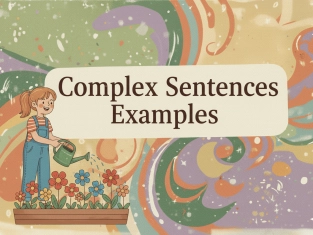Future forms – will, be going to, present continuous
Table of Contents
Exercises
Explanation
1. Will – for Decisions, Promises, and Predictions
We use will when we decide to do something at the moment of speaking, when we make a promise, or when we talk about what we think will happen.
Structure:
will + base verb
Examples:
-
I think it will rain later.
-
Don’t worry, I will help you.
-
She will call when she arrives.
-
I promise I won’t be late.
Time markers: tomorrow, next week, soon, in a few days
2. Be Going To – for Plans and Intentions
We use be going to when we already decided to do something before the moment of speaking, or when there is evidence something will happen.
Structure:
am / is / are + going to + base verb
Examples:
-
I’m going to start a new hobby next month.
-
They’re going to visit their grandparents this weekend.
-
Look at those clouds! It’s going to snow soon.
Time markers: tonight, next weekend, soon, in the morning
Tip: “Gonna” = informal form of “going to”
-
I’m gonna cook tonight. (Use only in informal speech.)
3. Present Continuous – for Arrangements
We use the present continuous to talk about fixed plans or arrangements, usually in the near future.
It often sounds more certain than “going to.”
Structure:
am / is / are + verb-ing
Examples:
-
We’re meeting our friends at 7 p.m.
-
I’m flying to Madrid on Friday.
-
She’s having lunch with her boss tomorrow.
Time markers: tomorrow, next week, on Saturday, tonight
Quick Comparison
|
Meaning |
Form |
Example |
|
Spontaneous decision |
will |
I’m cold — I will close the window. |
|
Plan / intention |
be going to |
I’m going to buy a new phone. |
|
Fixed arrangement |
present continuous |
We’re seeing the doctor at 10 a.m. |
|
Prediction (based on opinion) |
will |
I think she will pass the exam. |
|
Prediction (based on evidence) |
be going to |
Look at the sky — it’s going to rain. |
Practice Tip
If you want to sound natural in English, mix these future forms depending on what you mean:
-
“I think I’ll order pizza.” (decision now)
-
“I’m going to clean the house tomorrow.” (plan)
-
“We’re meeting our teacher next week.” (arrangement)

